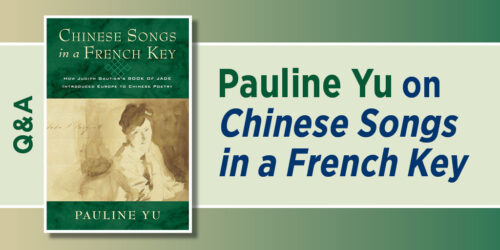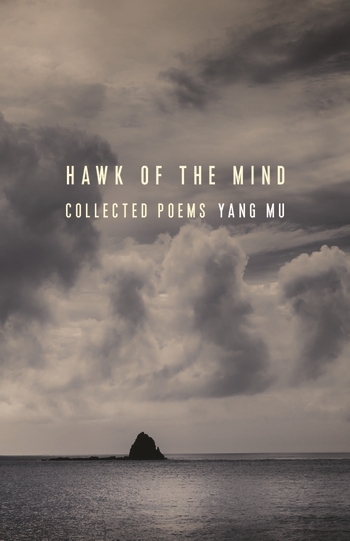Book Excerpt and Media Roundup: Hawk of the Mind: Collected Poems

“The work of Taiwanese poet Yang Mu brings vivid and playful pastoral imagery. He examines both Chinese and Western literary and cultural traditions through his personal lens, and his writing retains its beautifully lyrical nature through the translation.”
~ Yang Mu, World Literature Today
Our Poetry Month celebration continues today with this book excerpt and media roundup of Hawk of the Mind: Collected Poems. Yang Mu is a towering figure in modern Chinese poetry. Hawk of the Mind is a comprehensive collection of Yang Mu’s poetry that presents crucial works from the many stages of his long creative career, rendered into English by a team of distinguished translators, illustrating the distinctive style and affective power of a great poet.
Enter our Poetry Month drawing for your chance to win a copy of this book!
• • • • • •
In the News
It is useless to live
Nan Z. Da on harm, lovesickness and an aesthetic of squandering in Chinese poetry
The Times Literary Supplement: August 2018
Yang Mu’s Hawk of the Mind makes no explicit reference to the Li Sao, but shares with it the distinct sense that the airing of grievances and the poetic adjustments of juridical oversight express themselves first in nature’s decadence: “red lotuses that wither and bloom again wood sprites that float up and quickly sink”; “the sound of a chinaberry growing and at the same time dropping fruit.”
Continue Reading
Hawk of the Mind
The World Literature Review: Septemeber 2018
Translated from Chinese by a variety of translators, the work of Taiwanese poet Yang Mu brings vivid and playful pastoral imagery. He examines both Chinese and Western literary and cultural traditions through his personal lens, and his writing retains its beautifully lyrical nature through the translation.
From the CUP Archives
The Poetic Universe Yang Mu
This is the first of a two-part series written by Xiaohan Du, a PhD Candidate in Art History at Columbia University.
We recently published Hawk of the Mind, a collection of Yang’s poems beautifully rendered into English by a team of distinguished translators and edited by Michelle Yeh. The translation successfully captures the evocativeness of the author’s lyrical voice, bringing readers into a poetic universe that traverses different literary traditions and historical times.
Yang’s poetic imagery stems from several sources. A native of the beautiful Hualian City in eastern Taiwan, Yang incorporates the natural scenery of his seaside hometown in his poems, with plunging cliffs and sweeping oceans as recurring motifs, serving as dramatic backdrops against which the poetic event unfolds.
Continue Reading
Yang Mu and Western Literary Tradition
As a young poet in the 1950s, Yang Mu was widely exposed to Western literature and was especially drawn to English Romanticism—Shelley and Keats in particular; later as a student of comparative literature in the US at UC Berkeley, he studied a wide range of Western classics, from ancient Greek and Roman to Old English and medieval German, to Anglo-American modernism.



